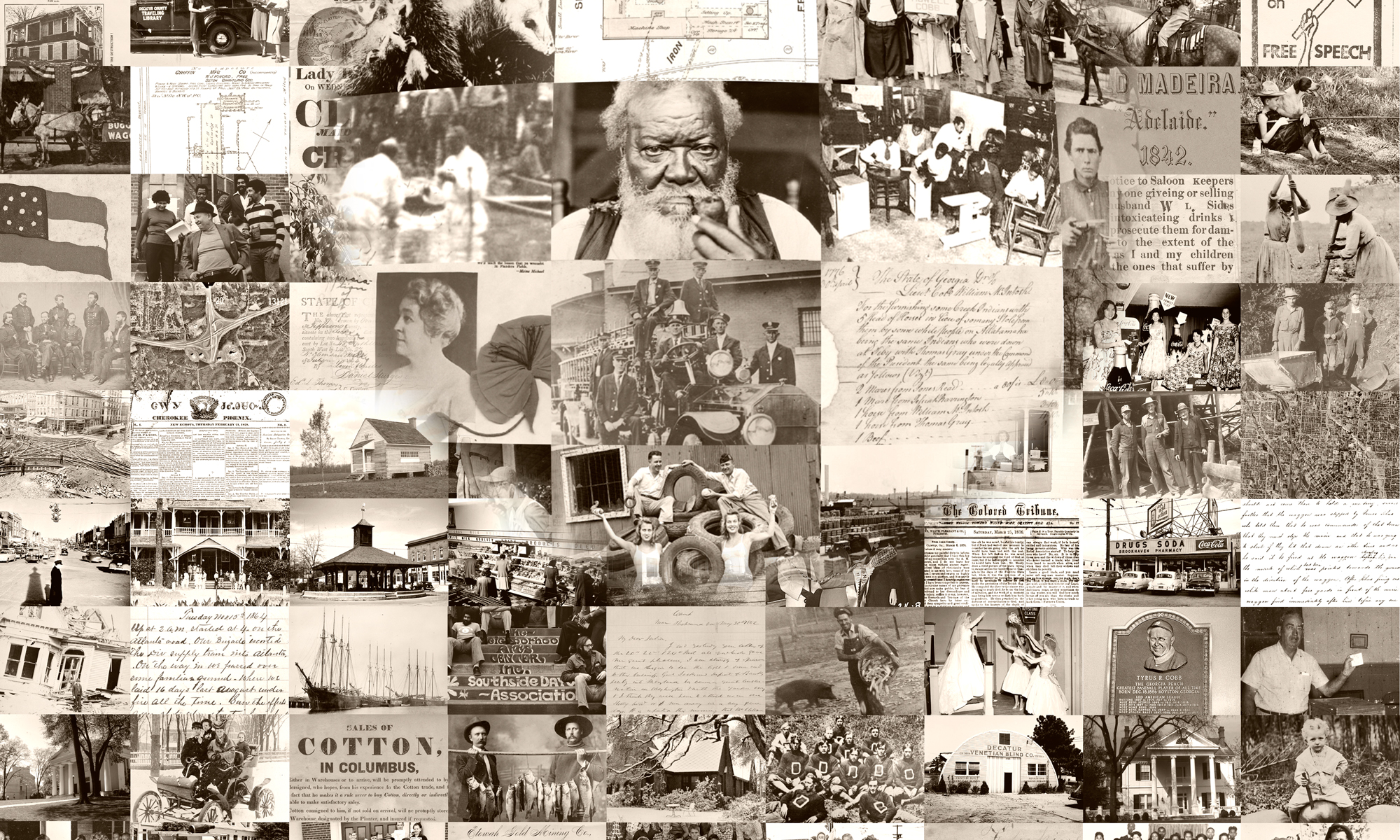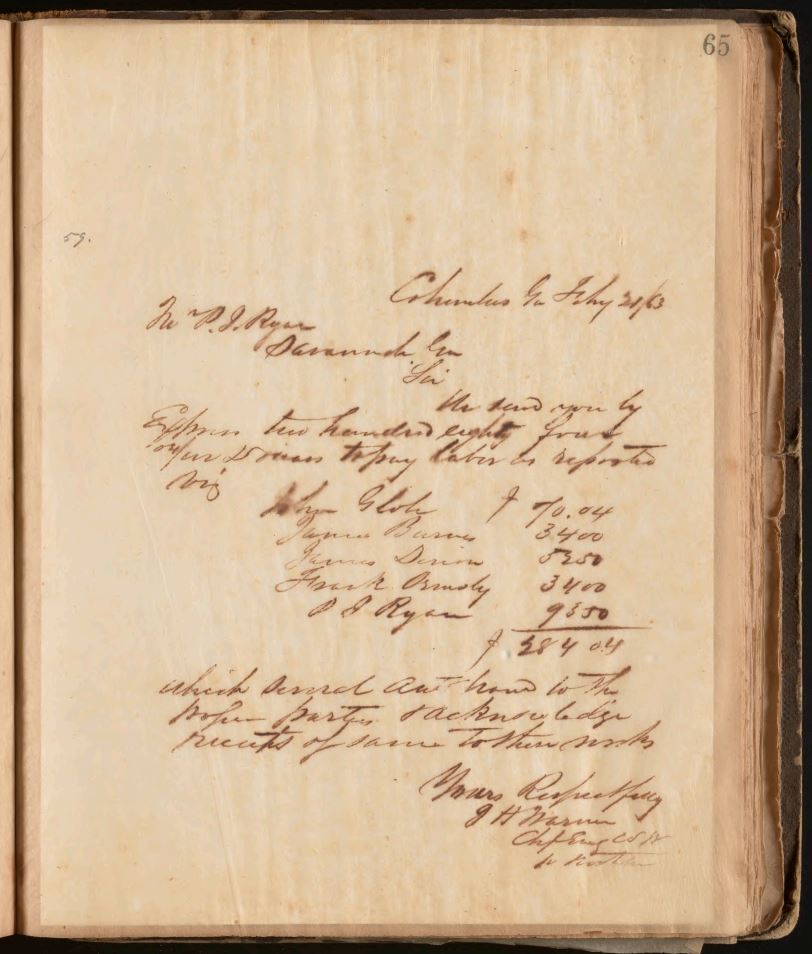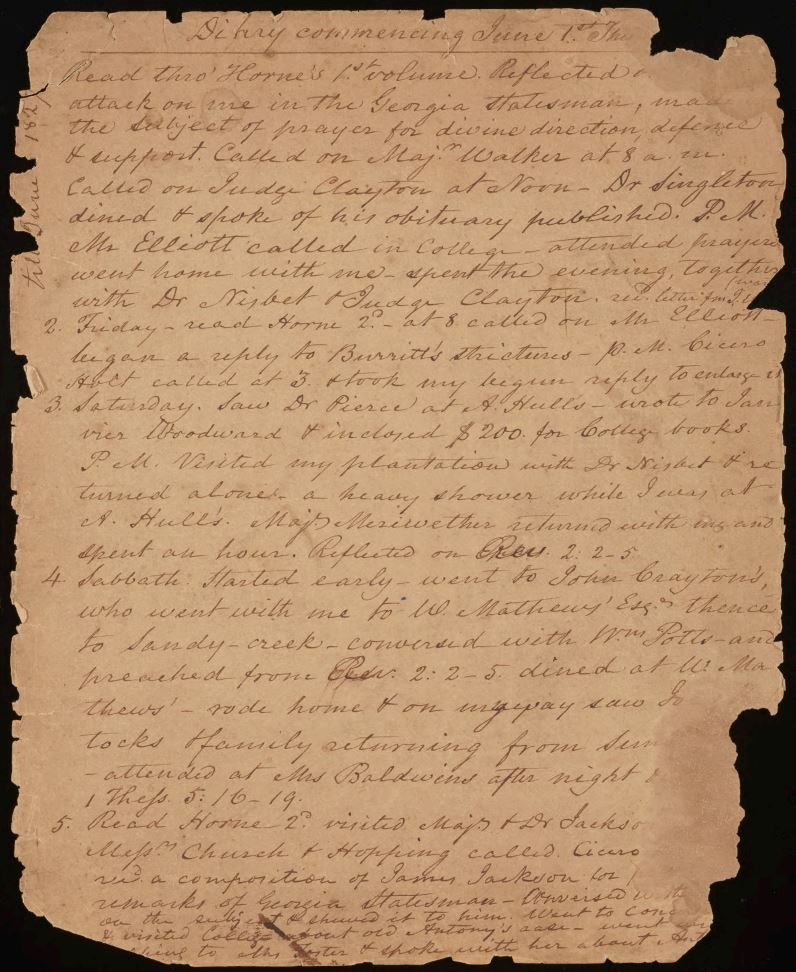ATHENS, Ga. — A Civil War-era ledger belonging to James H. Warner, commander and superintendent of the Confederate States Naval Iron Works (sometimes referred to as the Columbus Iron Works) is now available through the Digital Library of Georgia at dlg.usg.edu/collection/ncwnm_jhwl.
James H. Warner received a commission in the United States Navy in 1851 as a third assistant engineer. He became a chief engineer in 1856. Warner later served the Confederacy, where he received his assignment in Columbus, Georgia in 1862. As a naval engineer, he consulted for a number of projects throughout the South and was instrumental in the construction of the CSS Jackson, built in Columbus.
The Confederate States Naval Iron Works operated from 1862-1865. The ledger also includes entries as late as 1866 as Warner worked with the United States Navy in turning over naval equipment to the United States government. Records surviving the Civil War that document the Confederate Navy is limited. This ledger provides information about Columbus, Georgia, ironclad construction, steam engines, and the daily operation and industrial reach of the Confederate States Naval Iron Works.
Robert Holcombe, former director and historian of the Confederate Naval Museum describes the significance of the ledger:
“Not only has this ledger been a great resource for those studying steam engines, ship construction, etc. from the Civil War period, it is largely an untapped resource for those studying Columbus and the Chattahoochee River Valley. Making this ledger known and available for a wider audience will benefit Columbus, as well as making this important source more readily accessible for Civil War naval research.”
About the National Civil War Naval Museum
The National Civil War Naval Museum houses the largest surviving Confederate warship, the CSS Jackson, as well as the wreckage of the CSS Chattahoochee, and the largest collection of Civil War Naval-related flags on display in the country. Their timeline exhibit shows naval events and features many of the museum’s most rare artifacts, such as the uniform coat of Captain Catesby Jones and Admiral Farragut’s two-star hat insignia. The museum hosts a range of events throughout the year with an emphasis on museum theatre and historic character interpretation. Additionally, there are living history events, tours, cannon firings, weapons demonstrations, local history projects and more. Visit portcolumbus.org/



